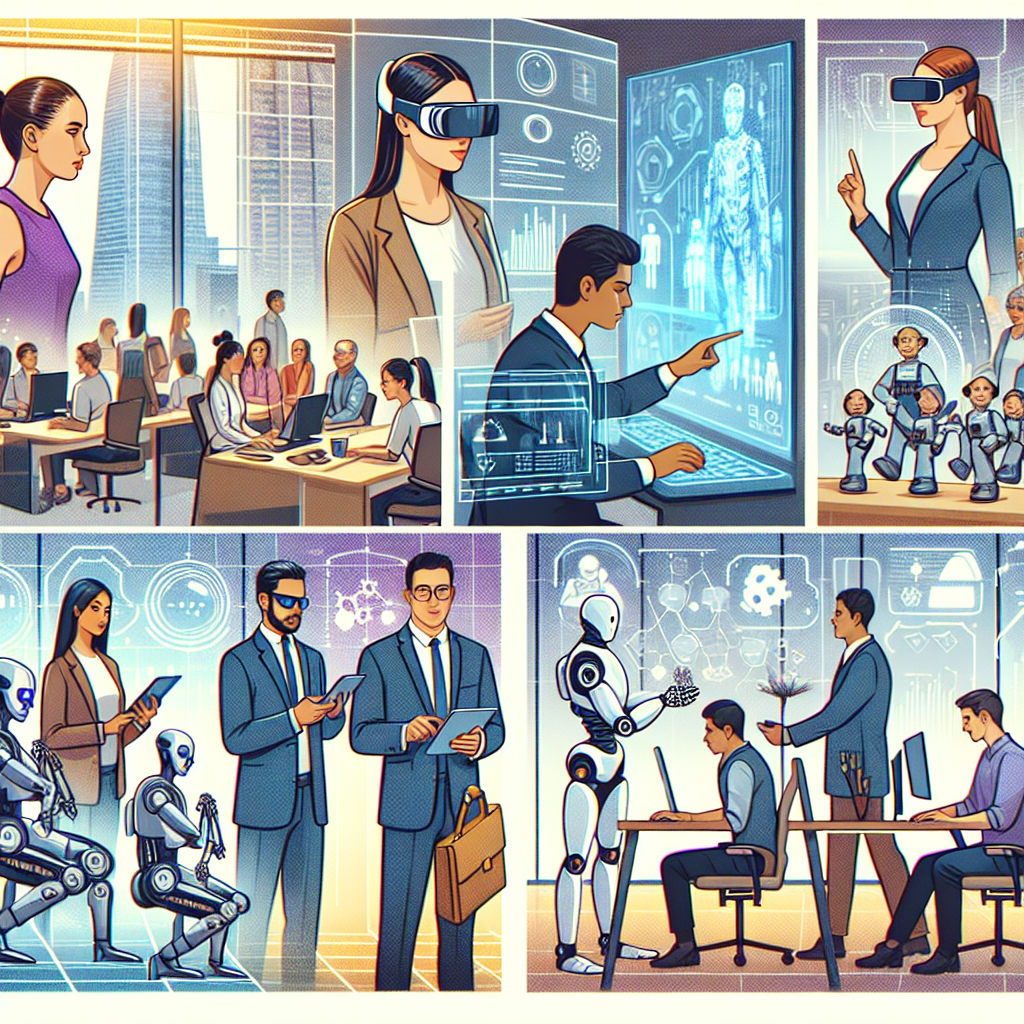[ad_1]
As the integration of machine learning (ML) into various sectors accelerates, its influence on career paths, necessary skills, and employment landscapes is evolving drastically. With businesses seeking to harness the power of ML for efficiency and competitive advantage, the workforce must adapt appropriately to thrive in the future job market.
Understanding Machine Learning’s Role in the Workplace
Machine learning, a subset of artificial intelligence, involves the use of algorithms that allow computers to learn from and make predictions or decisions based on data. This technology is rapidly transforming how processes and services are carried out across industries such as healthcare, finance, retail, and more.
Shifts in Career Paths and Skills
The adoption of ML is altering job roles and creating new career opportunities. Traditional roles are evolving, and entirely new positions are being created, emphasizing the need for specialized skill sets.
| Traditional Role | Future Role with ML | Required Skill Set |
|---|---|---|
| Customer Service Representative | AI-Enabled Service Facilitator | Technology proficiency, Data analytics |
| Financial Analyst | Data Scientist in Finance | Machine learning, Statistical modeling |
| Human Resources Manager | People Analytics Specialist | Human Resource Information Systems, Predictive analytics |
This table reflects just a few examples of how ML is transitioning traditional jobs into something more modern and tech-centric. Career seekers and those evolving in their professions must embrace and adapt to these changes by acquiring new, relevant skills.
Impact on Learning and Development
The necessity for continuous learning in the workplace can’t be overstated, particularly with the advent of ML. Organizations and individuals must prioritize learning to keep pace with technological advancements. This serves not only to support career growth but also to ensure competitive viability in a transforming market.
Future Trends and Predictions
Machine learning is expected to create value across sectors, optimizing operations and enhancing decision-making processes. Here are a few key trends that signify the expansion of ML in the workplace:
- Increased automation of routine tasks will give rise to more strategic and analytical roles.
- The rise of “hybrid jobs” that combine aspects of technical skills with domain-specific knowledge.
- Greater emphasis on data-driven decision making and predictive analytics in managerial roles.
Case Study Insights
“Machine Learning isn’t about replacing jobs. It’s about empowering professionals to achieve more sophisticated and impactful results through the leverage of advanced tools and techniques.” – John Doe, AI Researcher at Tech Innovations Inc.
This perspective is crucial because it emphasizes enhancement over replacement, highlighting ML’s role as a tool that augments human capabilities rather than diminishing them.
Conclusion
Machine learning is a transformative force in the workforce, essential for driving innovation and efficiency. As it reshapes career trajectories and skill requirements, embracing continuous education and adaptability will be crucial for career success. Professionals who can use ML tools and concepts to augment their roles or innovate new solutions will find themselves at the forefront of their fields.
Frequently Asked Questions
How does machine learning impact job security?
While ML automates some tasks, it also creates new jobs and enhances others, making job security dependent on adaptability and willingness to learn new skills.
What skills are necessary to thrive in an ML-influenced job market?
Skills in data analytics, understanding of ML algorithms, proficiency in using ML tools, and the ability to integrate ML insights into business decisions are crucial.
Can non-technical people thrive in an environment influenced by machine learning?
Yes, non-technical roles can thrive by focusing on strategic decision-making, managing ML projects, and understanding the implications of machine learning in their field.
[ad_2]
